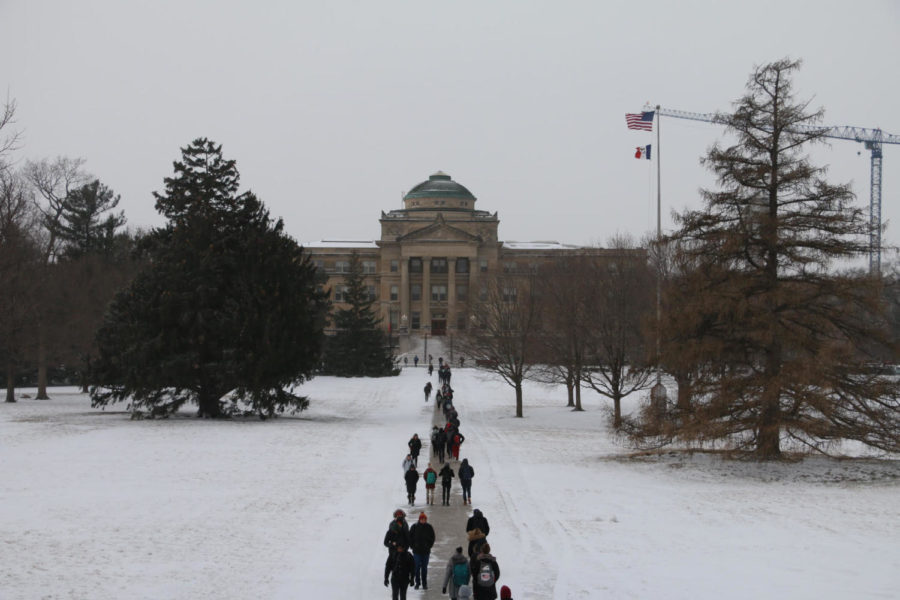Letter: The cost of higher education
Emily Blobaum/Iowa State Daily
Students walk between Curtiss and Beardshear halls in the snow on Jan. 11, 2018.
February 6, 2019
It’s no secret the cost of higher education is one of the main barriers of entry to higher education in the United States. Many solutions to this problem have been suggested including making higher education free or encouraging students to go to other institutions like a trade school instead of a 4-year University. While that debate rages on I think before doing either we should look first into ending the unfair price discrimination against our out of state students.
According to the university as of fall 2018, the average in-state student paid $3,870 per semester for tuition, which is one of the lowest in the nation for a school of our size and caliber. Great for in-state students but for an out-of-state student like me, the picture isn’t nearly so pretty.
In the same year, an out-of-state student pays around $11,072 a semester — a few hundred bucks less than an international student — but almost three times more than an in-state student. Now I can expect to be asked why is this a problem? According to University Statistics from September 2018 “Iowa State University’s fall 2018 enrollment is a robust 34,992. Of that number, 29,621 are undergraduates.” The report also states that Iowa State has 12,279 out-of-state students and of those 10,289 are undergraduate students.
These insane differences in tuition costs discourage students from diverse backgrounds from attending Iowa State and universities across the nation. Especially since tuition is expected to rise 3 percent each year for the next five years. Meaning out-of-state students can expect to pay around $1,600 more in the next five years.
Not only is this price discrimination unfair, but it also hurts students. It can lead to lower education quality and therefore, lower-paying, less successful careers for students in the long run as well. A reduction in equation quality hurts the economy of not only the state but the nation as a whole. It should go without saying that a less educated workforce is likely going to be a less productive and prosperous workforce.
Why are we punishing our fellow Americans and fellow Cyclones with such a fate? We talk about diversity and inclusion a lot but based on this and many other university practices Iowa State is good at talking the talk but not so good at walking the walk.
In my view, the way to get around this problem is to have all schools and states stop this discrimination with federal laws and/or regulations.
If states want to attract more students and money into their own states, they should improve the academics at their universities in order to attract students from other states. Instead of asking “how do we keep people in the state” schools and states should be asking “how do we attract more people to the state,” that distinction makes a world of difference.
We should start to consider getting rid of out-of-state tuition altogether. This would lead to more diverse schools which could lead to more diverse states ultimately leading to a more diverse nation.
If Iowa State in particular really cares about creating and maintaining a community that is diverse both economically and racially (which we really need to work on!) then it and other universities like it, should consider supporting policies that move toward that goal.
Ending unfair tuition discrimination would be a start but also a start of a more diverse campus, state and nation. That’s a future I would love to see and is a future I hope we can all work toward.
















